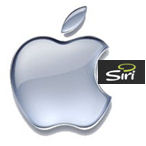- Have any questions?
- Office: +1 (650) 345-8510
- Mobile: +1 (650) 576-6916
- norm@traveltechnology.com
Apple Buys Siri
Apple iTravel
April 28, 2010AMS 3.0 Digitizing the World’s Content
June 21, 2010Loyal readers of my blog know that I have long advocated the need for a more intelligent interface for travel planing and booking. Early self-booking engines often promoted themselves as replacements for travel agents, while in reality most were (and many still are) simply sending off commands to the GDS or supplier reservation systems and displaying standard content. During the TNooz #tcamp5 panel last week at Travdex, Gene Quinn asked me what will it take to have a superior mobile interface. My answer was intelligence. So it was quite interesting to see the announcement on April 28th, 2010 that Apple would be buying Siri. Adam Cheyer, Siri co-founder, has stated that people “need a new way to interact with services on the Internet: a “do engine” rather than a search engine.” Siri traces its origins to a military-funded artificial intelligence project called CALO, for “cognitive assistant that leans and organizes”. The goal was to create a personal assistant that improves by interacting with its user. If you ask a frequent traveler the characteristics of a good travel agent (yes there are still people who use traditional travel agents), they would likely say that the agent knows their preferences and anticipates their needs during the travel planning process. The promise of AI (a now much maligned term) was to emulate human thought through computing. Siri clearly has its eye on this goal.
It is ironic that Siri is now at Apple. I have often referenced the “Ah Ha” moment I had (as many attendees did) when John Sculley introduced the Knowledge Navigator video at MacWorld in 1989. Unfortunately the Newton which Apple launched about a year later fell way short of this vision. The Siri acquisition repositions Apple to fulfill this original vision. In conversations with Siri prior to the acquisition, I learned that travel is a key part of their development roadmap.Though it is likely the acquisition of Siri has bigger mobile search implications beyond travel, many have speculated that the combination of Siri with the iTravel could position Apple in a new role to disrupt the industry by providing intelligent local search on the iPhone as part of a comprehensive travel software offering.


